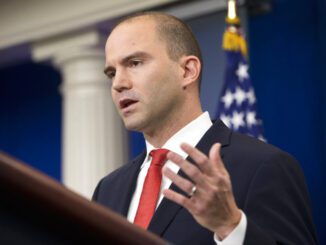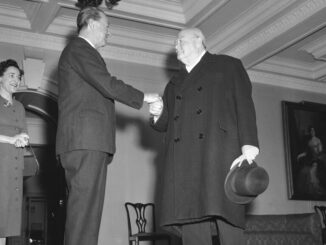October was a pivotal month for Harvard University. Not only did Harvard out itself as a redoubt for radicals, its Department of Education documented a mental health crisis among young adults, ages 18-25. In a report titled “On Edge: Understanding and Preventing Young Adults’ Mental Health Challenges,” Harvard researchers found that a “really high percentage of young adults…felt anxious, depressed, or both.”
Respondents to Harvard’s nationwide survey cite “loneliness,” climate change, and “the perception that the world is unraveling” among the causes for their distress. if respondents mentioned the divisive effects of their DEI training, the Harvard report omits that inconvenient truth. Nowhere in that report do the Harvard researchers admit that when they obsess about the so-called victims of “white supremacy,” like Shakespeare’s Lord Talbot, they themselves become “the scarecrow that affrights our children.”
To manage this nationwide crisis, Harvard researchers recommend “cultivating meaning and purpose in young people, including by engaging them in caring for others and service.” All that is code for “cultivating activists to care for the designated oppressed and to serve the Department of Education’s designated causes.”
When Harvard alum Bill Ackman discovered that “The DEI program at Harvard is limited to specific groups and exploits others,” he famously withdrew his support.
On Nov. 10, Former Harvard President Lawrence Summers chimed in, noting that “ideologies arising out of identity politics have too often had the effect of driving discrimination against groups whose members have been most committed to the values of rigorous study and intellectual inquiry” — which is a polite way of saying that our universities’ ideologues have followed Karl Marx’s directive to abet activists who express “vengeance against hated individuals or public buildings which have acquired hateful memories.”
Dr. Summers does not connect the rise of university Marxists with a nationwide decline in Gen Z’s mental health, but Columbia University sociologist Musa al-Gharbi has found that leftist views “actually exacerbate depression, anxiety, or other problems” because minorities (like himself) are “cudgeled relentlessly with messages about how oppressed, exploited, and powerless we are, and how white people need to ‘get it together’ to change this.” Dr. al-Gharbi also notes that our nation’s “spike in depression” corresponds exactly with the “onset of the ‘Great Awokening.’”
On the other hand, Dr. al-Gharbi has found that conservatives “report significantly higher levels of happiness” because they believe in “personal responsibility” and because “conservatism actually comes from feeling deeper connections with one’s country, one’s family, and the Divine.” I can picture conservative students listening, tongue in cheek, as woke professors pursue their mission to “disrupt systems of oppression” and to incite “youth participatory action” that “might lead to social transformation.” Such are the goals of Harvard professor Aaliyah El-Amin, who co-chairs the Department of Education’s concentration in “Identity, Power, and Justice.”
Syndicated columnist Joseph Epstein believes that reviving an interest in literature will “counter the many coarse ideas sent out into the world by inferior thinkers and published by witless academics.” Epstein might suggest that troubled young adults begin by reading Ralph Waldo Emerson’s essay “Self Reliance” and adopting Emerson’s creed to “Live no longer to the expectation of these deceived and deceiving people with whom we converse.”
There is no better example of the type Emerson describes than Bennington College English professor Benjamin Anastas, who has called Emerson’s essay “the most pernicious piece of literature in the American canon” because it promotes a “love of liberty that debases our national politics.” My concern is the pernicious effect professors like Anastas are having on the young-adult psyche.
Robert Frost said that “Poets like Shakespeare knew more about psychiatry than any $25-an-hour man.” Novelist John Updike said it better: “Fiction is nothing less than the sublest instrument for self-examination and self-display that mankind has invented yet….For the air and iron, fire and spit of our daily mortal adventure there is nothing like fiction: it makes sociology look priggish, history problematical, the film media two dimensional, and the National Enquirer as serious as last week’s cereal box.”
If troubled young adults could learn to take their hard-left professors “as serious as last week’s cereal box,” they would remove a major contributor to our nation’s mental health crisis.



